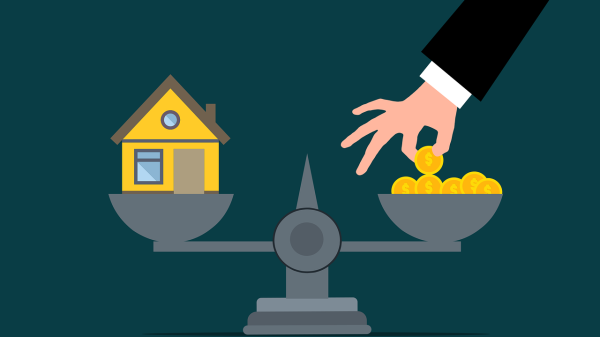The process of gathering information regarding your search for a loan can be a time-consuming task. This is especially true if, afterward, you realize that you have been gathering the wrong information. Not only could it be a time-consuming task, but it could also result in choosing an inappropriate lender, which could have a negative effect on your finances in the future. Thus, you could find out the hard way that, in reality, the best loan you have read about is not really the best loan for you.
Most probably, when you are shopping for a loan, you will go online and start looking for the best mortgage, the best car loan, or the best of whatever loan you need. This concept of gathering information and making decisions could, later on, turn out to be one of the worst mistakes you have made. Do you understand why? You can find information online about the best mortgage available. But did you ask the crucial questions, why is this the best mortgage and, who is it best for, is it best for you?
It should be pointed out here that the most common mistake when shopping for a loan is that we all shop for the best loan. Instead of gathering information and looking for the best loan for us personally, the most appropriate loan is in accordance with our needs and desires.
Thus, before you start gathering information about the best loan, make sure that you understand the main aspects associated with almost every loan. The crucial point is that you understand the basics of the loans instead of understanding the offers about the best loan. Do not try to understand the best loan placed in front of you on your screen. Instead, try to understand the things you should be informed about before choosing the best lender and/or loan. So, you might wonder, when looking for the best loan, what are the basic issues that you should be familiar with? First and foremost, the most important issue is for you to understand that you are looking for the best loan for you. Do not fall into the trap of accepting a loan that has been heavily promoted. It doesn’t necessarily mean that this is the best loan for you. Coming back to the aspects you should be informed about in relation to the loans, they are:
- Inform yourself about interest rate-related issues – there are two things that should be considered when talking about interest rates. Namely, you should be aware that the interest rate could be fixed or variable. Thus, you need to gather information about the advantages and disadvantages that come with a fixed interest rate loan and a variable interest rate loan. Consequently, you should decide whether you want your loan to bear a fixed or variable interest rate. In addition, you should also know that a loan has an interest rate and annual percentage rate or APR. You can find ads promoting the lowest interest or low APR, but do you really know what the difference is?
- Always know your credit score before you start shopping for a loan. This is an important issue because a high credit score could enable you to get a loan with a lower interest rate. It could give you a certain degree of negotiation power with your creditor. Every lender is looking for a credit-worthy borrower. Try to use your advantage for your own benefit.
- Another thing to consider is the debt-to-income ratio since it is an important indicator of your financial health. Make sure that you understand the debt to income and calculate yours as well before shopping for a loan. Hence, you would know the maximum amount of debt you could afford.
- The repayment period or loan term is yet another subject that should be taken into consideration. You should be aware of the effect arising from a different loan term on your financial health as well as living standard. Namely, repaying your loan in a shorter time could potentially result in saving in interest rate charges but could mean higher monthly payments. Subsequently, the monthly payment is another point to be considered. Most often, you can find any info about how much mortgage you can afford or how much loan you can afford. But the thing that should additionally be of interest to you is how much you want your monthly payment to be. Although your credit score, along with the debt to income, could show that you can afford higher monthly payments, it doesn’t mean that you should take the maximum loan, especially if you do not need so many funds.
- Knowing all additional charges and fees is of crucial importance to you. Don’t put yourself in a situation where you pay hidden fees just because you didn’t ask your lender everything. These fees can be substantial if you have a loan with a longer repayment period.
- The collateral requirement – among other things, you should also know whether or not the lender is asking for some type of collateral. Namely, you should know that a lender can offer secured or unsecured loans. The first is a loan, where you should provide some form of assets as a guarantee that you will pay back the loan.
- Maybe the most important thing for easier comparison is the cost of credit. The cost of credit provides information about the full cost of the loan you are going to take. One way to find the cost of credit is to multiply the number of your monthly payments by the number of payments you will have and add all fees and charges you will have to pay. Then subtract the principal amount of the loan. The number you will get is the cost of your credit. Simply stated, the cost of borrowing is the difference between the principal amount you borrow and the total amount you will have to repay your borrower by the end of the loan term. It could be said that the cost of credit is a good measure to see the real cost of the money you are planning to borrow.
When it comes to taking a loan, you should always consider financial and non-financial issues. Though there are things that could have an impact in terms of the cost of your loan (interest rate, credit score, etc.), there are also issues that will have an effect on your living standard as well as lifestyle. Never take out a loan in a situation in which you are not informed adequately. Never rush to get a loan. Don’t be eager. Make sure you have answered all the necessary questions before applying for a loan. Do not fall into the best loan trap. Look for the best loan for you.







